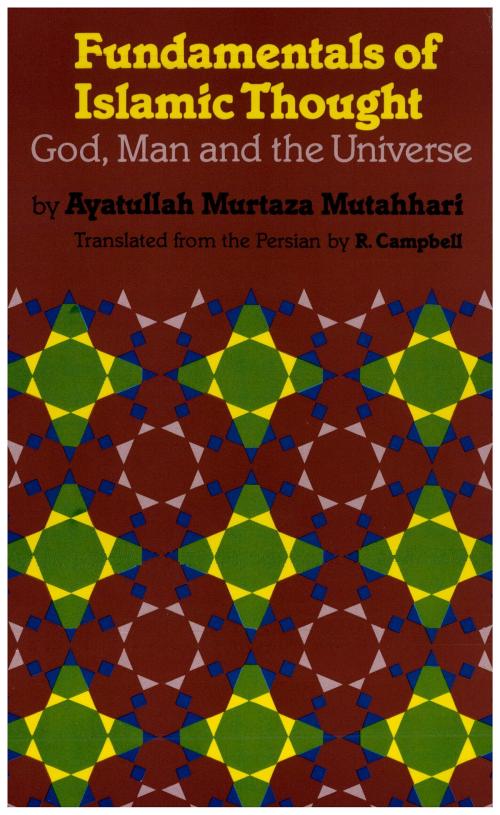Fundamentals of Islamic Thought
God, Man and the Universe
Nonfiction, Religion & Spirituality, Middle East Religions, Islam| Author: | Ayatullah Murtaza Mutahhari | ISBN: | 9781483555485 |
| Publisher: | BookBaby | Publication: | July 1, 2015 |
| Imprint: | Language: | English |
| Author: | Ayatullah Murtaza Mutahhari |
| ISBN: | 9781483555485 |
| Publisher: | BookBaby |
| Publication: | July 1, 2015 |
| Imprint: | |
| Language: | English |
Ayatullah Murtaza Mutahhari, assassinated in May 1979, soon after the triumph of a revolution he had done much to promote both intellectually and organizationally, was one of the most versatile and prolific of Iranian religious scholars in recent times. His work is marked by a philosophical clarity that particularly qualifies him to deal with the fundamental problems of religious thought that form the subject of this book. The first essay, "Man and Faith," describes the distinctive characteristics of man as an order of creation and establishes his lasting need for both science and faith as complementary means of understanding the universe. Then comes an examination of a key concept of Islam, "The World-View of Tauhid," including some of its implications for the structure of the universe as well as for society and culture. The third essay deals with the nature of the Islamic philosophical tradition from which Mutahhari's thought is derived. The collection is completed by three shorter pieces in which Mutahhari demonstrates his awareness of Western as well as Islamic thought and offers fresh views on several fundamental issues religious conern
Ayatullah Murtaza Mutahhari, assassinated in May 1979, soon after the triumph of a revolution he had done much to promote both intellectually and organizationally, was one of the most versatile and prolific of Iranian religious scholars in recent times. His work is marked by a philosophical clarity that particularly qualifies him to deal with the fundamental problems of religious thought that form the subject of this book. The first essay, "Man and Faith," describes the distinctive characteristics of man as an order of creation and establishes his lasting need for both science and faith as complementary means of understanding the universe. Then comes an examination of a key concept of Islam, "The World-View of Tauhid," including some of its implications for the structure of the universe as well as for society and culture. The third essay deals with the nature of the Islamic philosophical tradition from which Mutahhari's thought is derived. The collection is completed by three shorter pieces in which Mutahhari demonstrates his awareness of Western as well as Islamic thought and offers fresh views on several fundamental issues religious conern















